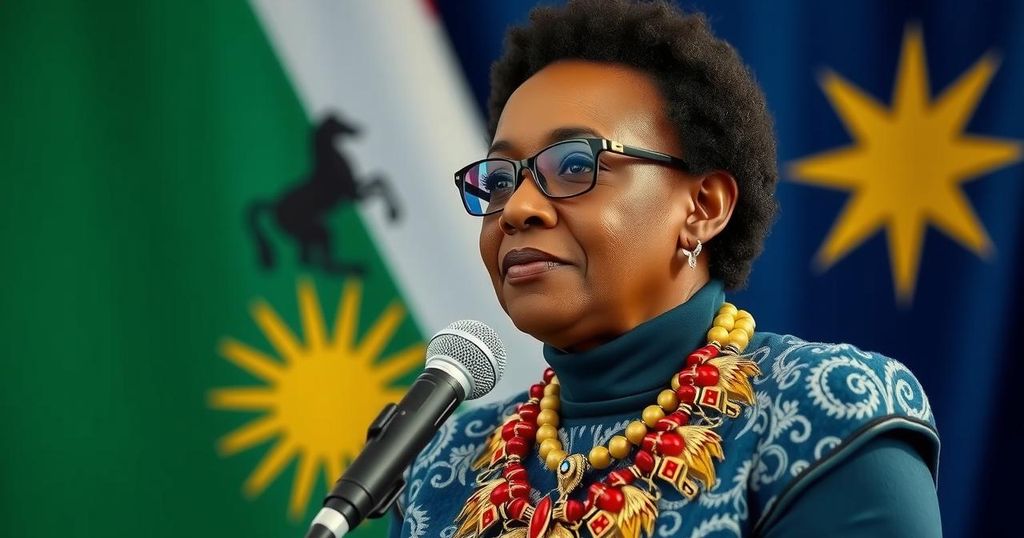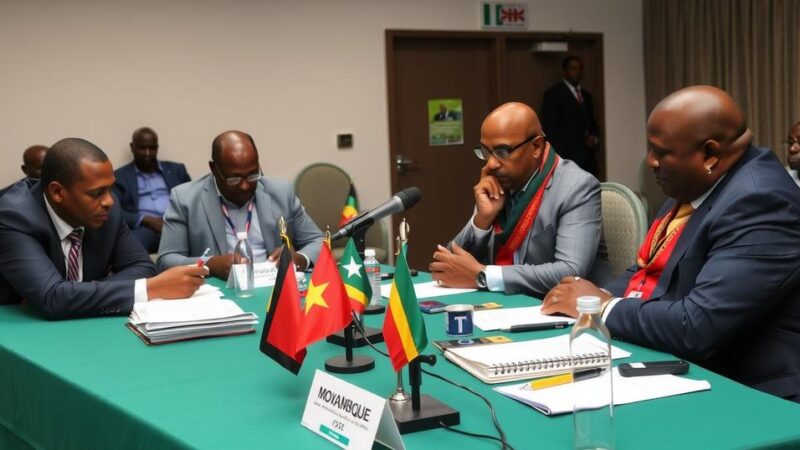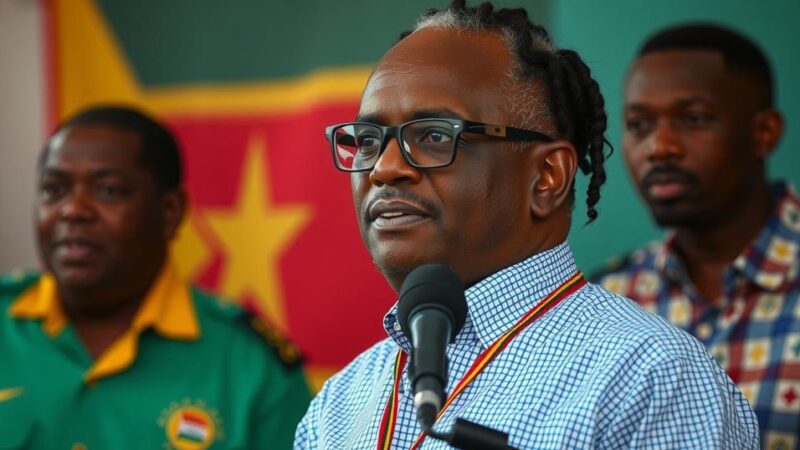Netumbo Nandi-Ndaitwah has been elected as Namibia’s first female president, winning 57% of the vote. Her victory reaffirms SWAPO’s lengthy rule amidst claims of electoral irregularities, prompting opposition parties to challenge the results. As she takes office, issues such as youth unemployment and governmental transparency remain critical.
Netumbo Nandi-Ndaitwah, at the age of 72, has been elected Namibia’s first female president, having secured 57 percent of the votes, as announced by the country’s electoral commission. This victory defied expectations of a potential run-off. Her election reinforces the South West Africa People’s Organisation’s (SWAPO) dominance, which has been in power since Namibia achieved independence from apartheid South Africa in 1990.
Following her election, Nandi-Ndaitwah stated, “The Namibian nation has voted for peace and stability,” indicating her aspirations for the country. However, the election has been marred by allegations of irregularities, including shortages of ballot papers and extended voting periods, which opposition parties claim undermined the election’s integrity. The main opposition candidate, Panduleni Itula of the Independent Patriots for Change (IPC), received 25.5 percent of the votes and has announced intentions to contest the election results legally, citing severe discrepancies that compromise the elections’ legitimacy.
The election of Namibia’s first female president marks a significant milestone in the nation’s political landscape. Netumbo Nandi-Ndaitwah has been a prominent figure within the SWAPO party, having participated in the independence movement during the 1970s and serving in various ministerial roles since Namibia’s independence in 1990. Her presidency occurs amidst critical challenges, including youth unemployment and demands for governmental reform, echoing a broader sentiment of dissatisfaction among younger voters.
Netumbo Nandi-Ndaitwah’s election is a historic achievement for gender representation in Namibia. While she has called for peace and continuity under her leadership, the legitimacy of the electoral process remains contentious due to claims of irregularities. This scenario indicates a significant intersection of political, social, and economic factors that may influence Namibia’s future governance and stability.
Original Source: www.aljazeera.com







